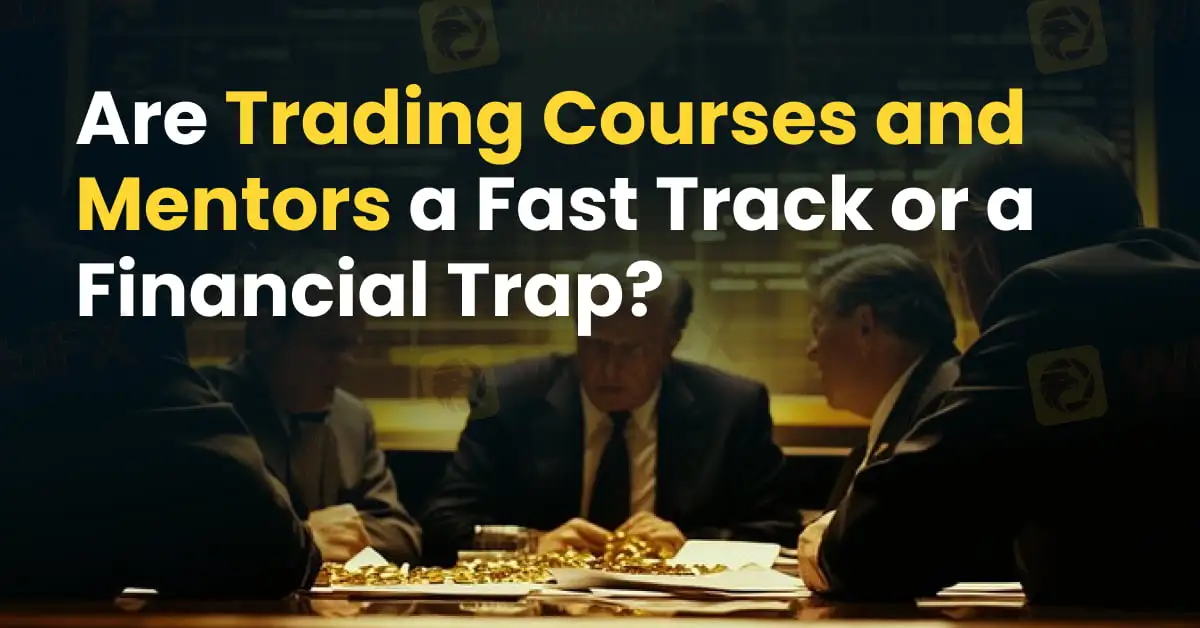Are Trading Courses and Mentors a Fast Track or a Financial Trap?
Abstract:In recent years, trading has become more popular than ever. Social media is full of people showing off their “trading lifestyle” with expensive cars, luxury holidays, and promises of easy money. Many of them claim to be mentors, investment coaches, or run online trading academies. They say they can turn beginners into full-time traders in just a few weeks. But is it true, or is it just a clever scam?

In recent years, trading has become more popular than ever. Social media is full of people showing off their “trading lifestyle” with expensive cars, luxury holidays, and promises of easy money. Many of them claim to be mentors, investment coaches, or run online trading academies. They say they can turn beginners into full-time traders in just a few weeks. But is it true, or is it just a clever scam?
For new traders, the idea of learning from someone more experienced makes sense. Trading is not easy. It takes time to understand charts, manage risk, and control your emotions. A mentor or course can seem like a quick way to avoid mistakes and start making money faster. But in reality, many of these “shortcuts” lead to disappointment.
The truth is, a large number of these so-called mentors and online courses are not what they seem. Behind the flashy websites and social media posts, many are selling empty promises. They charge high fees for basic or recycled information, and once you‘ve paid, the support often disappears. Some don’t trade at all as they make money only by selling the dream of trading to others.

Of course, not all courses or mentors are scams. There are a few professionals who offer real value. But the problem is knowing how to tell the difference. Anyone can rent a luxury car for a photo or post fake profits. And because the trading education industry is mostly unregulated, theres little to stop bad actors from taking advantage of new traders.
This raises an important question: Is there a shortcut to success in trading? Most experienced traders would say no. Success in the markets comes from hard work, learning through experience, and managing risk. It takes time, patience, and often, learning from your own mistakes.
The danger is that many beginners are eager to skip that journey. They want results now, and scammers know it. That‘s why it’s so important to be cautious. If someone promises easy profits or guaranteed success, thats a red flag. Always ask questions, check reviews, and be sceptical of anything that sounds too good to be true.
Trading is not a get-rich-quick scheme. It's a skill, and just like any skill, it takes time to develop. A good mentor or course can help, but it wont replace the hard work you need to do on your own.
In the end, the biggest risk in trading might not be the markets, but the people you trust to teach you how to trade them.

Read more

WikiFX Gala Night Malaysia Concludes Successfully
On June 27, 2025, WikiFX Gala Night Malaysia came to a successful close. The event focused on FinTech trends in Southeast Asia and the development of a compliant forex ecosystem, bringing together premium brokers, industry KOLs, payment technology providers, and local IB representatives from Malaysia, Singapore, Indonesia, the Philippines, and beyond to delve into forex opportunities in the new phase.

The Dollar Keeps Falling: How Should We View Exchange Rate Volatility?
The U.S. dollar continues to weaken, triggering ripple effects across global markets. Beneath the currency’s depreciation lies a deeper crisis in its credibility, institutional foundation, and global financial status.

Gold Prices Pull Back, Near Four-Week Low Amid Easing Risk Sentiment
As risk aversion fades and investors turn their attention to U.S. inflation data, gold prices retreat sharply, falling to their lowest levels in nearly a month.

Using Any of These Illegal Forex Trading Apps? Stop Before It Turns into a Crisis
The Reserve Bank of India (RBI) has listed out some illegal forex apps India. Read this article to know some of those apps.
WikiFX Broker
Latest News
Stablecoins go mainstream: Why banks and credit card firms are issuing their own crypto tokens
The Dollar Keeps Falling: How Should We View Exchange Rate Volatility?
Asia-Pacific markets rise as investors parse a slew of data releases
Asia-Pacific markets mostly rise as investors parse a slew of data releases
WikiFX Gala Night Malaysia Concludes Successfully
Are Trading Courses and Mentors a Fast Track or a Financial Trap?
The Economy - And Its Future - In Four Charts
At 20 years old, Reddit is defending its data and fighting AI with AI
Debt is a growing force' influencing jobseekers' choices, career expert says. Here's how
Gas prices are expected to fall: It's going to be the cheapest summer since 2021,' one expert says
Rate Calc
